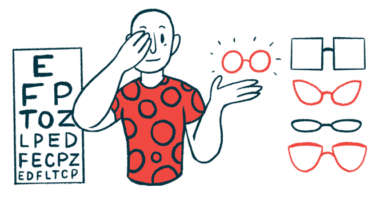New Study Highlights Emotional, Behavioral Challenges Due to Batten

For children with Batten disease, some behavioral and emotional challenges are a response to difficulties brought on by the inherited disorder, a new study highlights.
While the researchers emphasized that all children with Batten react to the disease in their own unique way, they offered some strategies that may help support each child — and family — facing challenges.
Specifically, the team hopes to make available to a wider audience the treatment strategies developed by a clinic in the Netherlands for children with Batten, also called CLN3 disease, and their parents and caregivers.
“In the Dutch NCL centre of expertise … children with CLN3 disease receive medical care, counselling and acquire additional therapy (e.g., speech therapy, physiotherapy and behavioural support). Parents of these children receive support as well. Therefore, health professionals working with these children and their parents have a lot of knowledge on specific CLN3-support,” they wrote. “This study aims at making this knowledge explicit.”
The study, “Towards Understanding Behaviour and Emotions of Children with CLN3 Disease (Batten Disease): Patterns, Problems and Support for Child and Family,” was published in the International Journal of Environmental Research and Public Health.
Batten disease is commonly associated with unusual behaviors, emotional challenges, and difficulty communicating. Now, scientists from the Dutch center shared an overview of behavioral and emotional problems encountered by the pediatric patients treated there.
The data were drawn from 11 children with Batten — seven boys and four girls.
Anxiety and sadness were frequently reported in the children with Batten treated at the center. Some children displayed unusually rebellious, passive, demanding, or aggressive behavior. Unusual obsessions, compulsive behavior, a fixation on the familiar, and increased sensitivity to noises or chaotic situations also were reported. Some children experienced hallucinations.
Seven children had data available on the Unified Batten Disease Rating Scale (UBDRS), a standardized measure of behavior in Batten disease. The researchers noted that all of these children reported substantial anxiety.
The team also noted that, for some behavioral issues, there appeared to be a link with other Batten symptoms. For example, some children reported unusual sadness, anxiety, or anger shortly after a marked deterioration in vision, cognition, or physical ability.
“From the connections between CLN3 disease symptoms and emotions, and from the fact that anxiety was noted in all UBDRS-files, it can be concluded that emotions play a key role in the behaviour of these children,” the researchers wrote.
However, the team noted that there were not consistent patterns in how children reacted to symptom changes, or how behaviors and emotions changed over time.
“Cognitive decline could, for example, lead to anger but also to sadness, and physical decline could lead to sadness but also to anxiety. This means that, according to our analysis, every child reacts in a personal way to symptoms of CLN3 disease,” the scientists wrote.
The researchers outlined the types of support and treatment they offer to help children with Batten disease. They noted the importance of clear communication, including describing what is happening with words, setting clear rules and routines, and offering extra explanations where needed.
The team also stressed the importance of encouraging children, acknowledging their emotions, and helping these pediatric patients to memorize and keep memories alive.
The emotional and practical difficulties faced by parents of children with Batten disease also were noted. The center offers some support structures for families caregivers. For example, the team recommends adjustments or aids at home to make day-to-day life easier, and education and counseling about Batten disease. Of particularly importance, the team noted, are connections with other parents of children with Batten.
“Parents with a child with CLN3 disease expressed an interest in and preference for parent-to-parent communication for support and information about the disease,” they wrote.
Though they stressed a need for further study, the researchers said that these findings may be helpful for designing additional strategies to offer support for children with Batten disease and their families.







